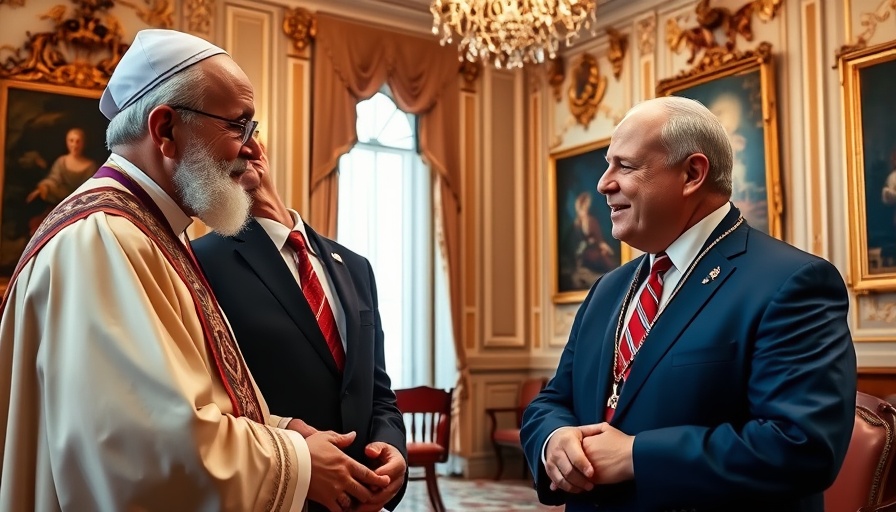
A New Chapter in U.S.-Vatican Relations
The recent meeting between U.S. Vice President JD Vance and Pope Francis on Easter Sunday not only epitomizes a moment of goodwill during the festive season but also signifies a hopeful thawing of tensions between U.S. immigration policies and the Vatican's commitment to humanity's most vulnerable. This encounter came in the wake of a complex history, marked by fierce debates over the treatment of migrants and the deportation strategies initiated by the previous administration. For Vance, a convert to Catholicism, it was both a personal and political gesture, perhaps underscoring his evolving stance on humanitarian issues as he navigates his role in the current administration.
A Heartfelt Exchange of Easter Greetings
During this brief but significant meeting, Vance was welcomed into the Vatican amidst the spiritual resonance of Easter celebrations. Having recovered from a serious pneumonia episode, Pope Francis received Vance with genuine warmth, reinforcing the central theme of compassion that he champions. As a token of goodwill, Francis gifted the Vice President three chocolate Easter eggs for his children, an emblem of the familial bonds that transcend political and theological differences. Vance's heartfelt remarks to the pope, expressing gratitude and well-wishes, also reflect a desire for healing not just on a personal level, but also within the broader U.S.-Vatican diplomatic relations.
The Human Cost of Migration Debates
The backdrop to this meeting cannot be overlooked. Pope Francis has been an unwavering advocate for migrants, fashioning his papacy around the principles of mercy and inclusion. In contrast, the Trump administration's strict immigration measures, including mass deportation plans, were met with vocal dissent from religious leaders. Vice President Vance's dialogue with Francis could indicate a shift toward a more compassionate approach to immigration policy—one that weighs the sanctity of human life above all else. Could this meeting herald a more humane migration policy in the U.S.? It remains to be seen, but the openness of these discussions certainly brings hope.
Looking Ahead: Migration and Policy Changes
As we gaze into the future, the implications of this meeting extend beyond cordial exchanges. Both Vance and the pope face increasing pressure domestically and internationally to address migration more humanely. Experts suggest this moment may pave the way for collaborative efforts aimed at creating responsible, yet compassionate immigration reforms. With Vance in a prominent position within the Biden administration, it’s worth monitoring how this meeting influences policy decisions that affect countless families both in the U.S. and in migrant communities abroad.
The Emotional Resonance of Easter
Easter is traditionally viewed as a time for renewal and hope. For the families affected by immigration policies, the intersection of faith and politics during such times speaks volumes. Vance’s meeting with Pope Francis reflects hope—a desire for reconciliation and understanding. As local residents in Suncoast prepare their communities for the Easter season, embracing the spirit of Easter could inspire transformative conversations around immigration and the responsibilities we hold toward one another.
Call to Action: Your Voice Matters
As these discussions unfold, it’s essential for local residents to voice their opinions on immigration reform. Engage with your community, attend local town hall meetings, and dialogue with policymakers to express your thoughts and feelings on how migration issues should be handled. Your voice can help drive the change we all hope to see!
 Add Row
Add Row  Add
Add 


Write A Comment